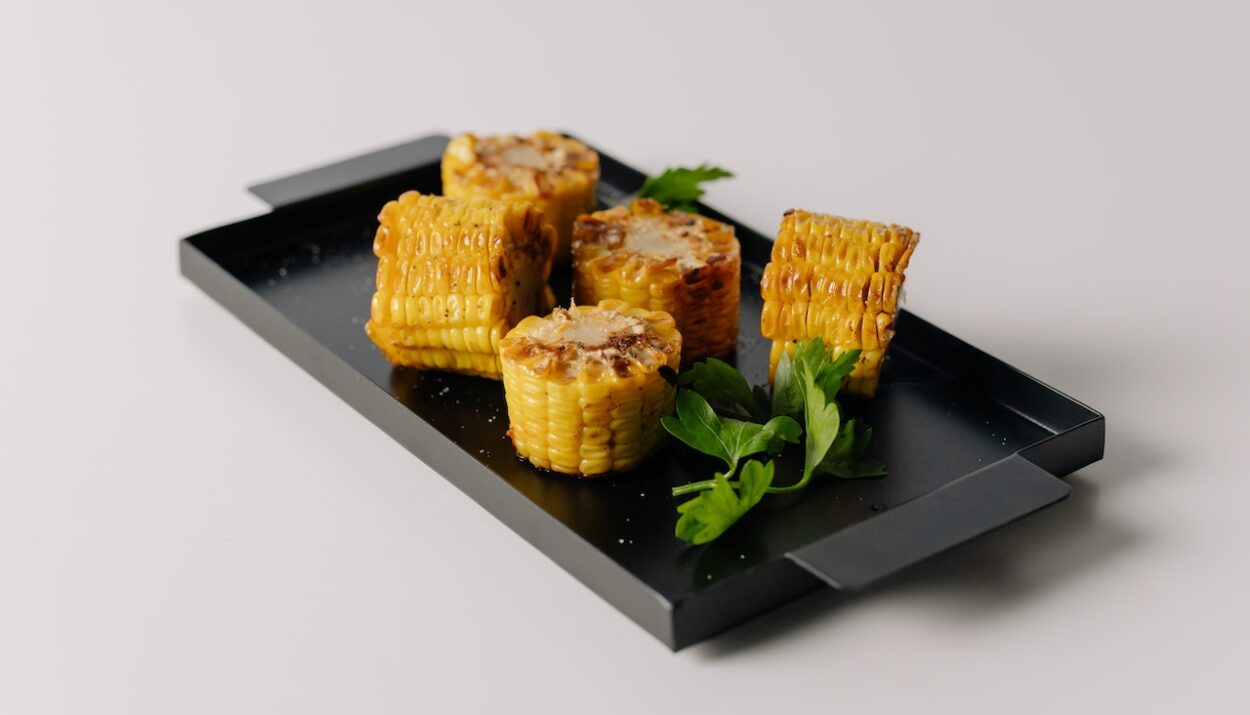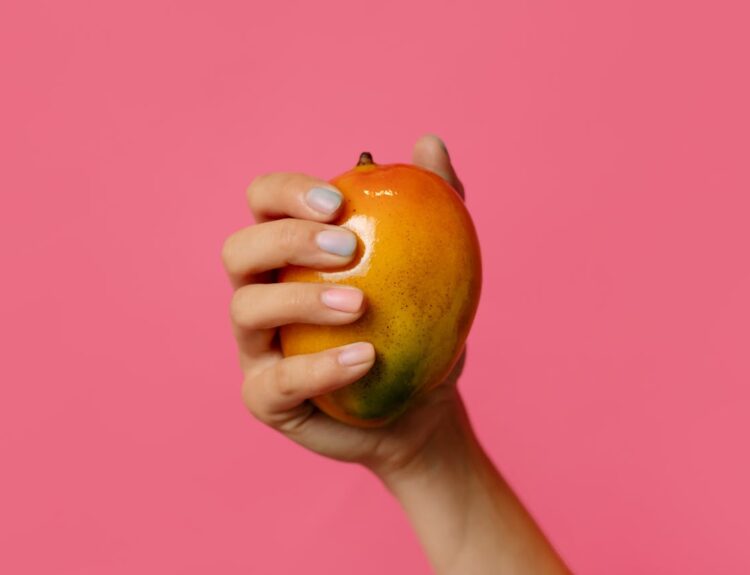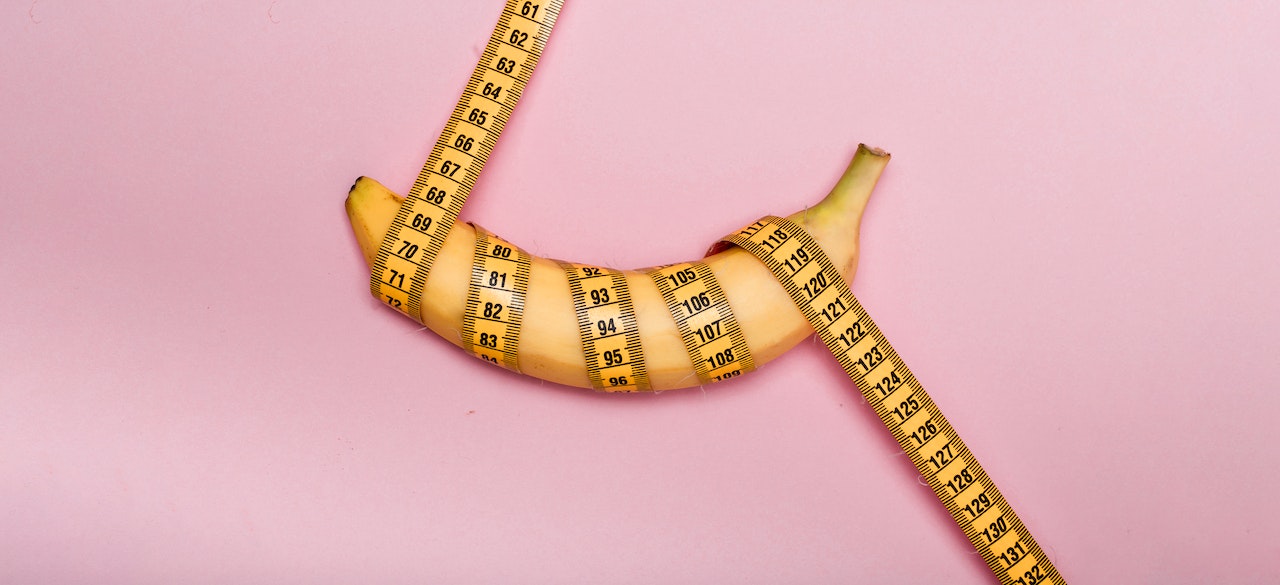“Is corn good for a diet?” If you’ve ever pondered this question while on your journey toward a healthier lifestyle, you’re not alone. The natural sweetness of corn can raise questions about its suitability for weight loss. In this article, we’ll peel back the mystery surrounding corn’s role in your diet. We’ll explore how to harness the potential of this beloved ingredient while working toward your weight loss goals. So, let’s discover the truth about corn’s dietary benefits!
Is corn good for a diet? Discover corn’s role in weight loss and whether corn can be part of a healthy lifestyle.
In this article:
- Is corn good for a diet: Corn’s nutritional profile
- Is corn good for a diet: The role of fiber
- Is corn good for a diet? Corn varieties
- Incorporating corn into a weight-loss-friendly diet
- Corn in weight loss: Delicious corn recipes
IS CORN GOOD FOR A DIET: CORN’S NUTRITIONAL PROFILE
Corn is a widely consumed grain with a nutritional profile that can make it a valuable addition to a balanced diet. Let’s delve deeper into the dietary aspects of corn to understand its role in a balanced diet.
Corn is a fantastic source of complex carbohydrates, providing sustained energy throughout the day. A single serving of corn contains fiber, essential vitamins like vitamin C, thiamin, and folate, and essential minerals such as magnesium and phosphorus. These nutrients are crucial in overall health, supporting immune function, energy metabolism, and bone health.
However, it’s important to note that corn also contains calories, primarily from carbohydrates. While it can be a part of a weight loss diet when consumed in moderation, portion control is essential to avoid excessive calorie intake.
IS CORN GOOD FOR A DIET: THE ROLE OF FIBER
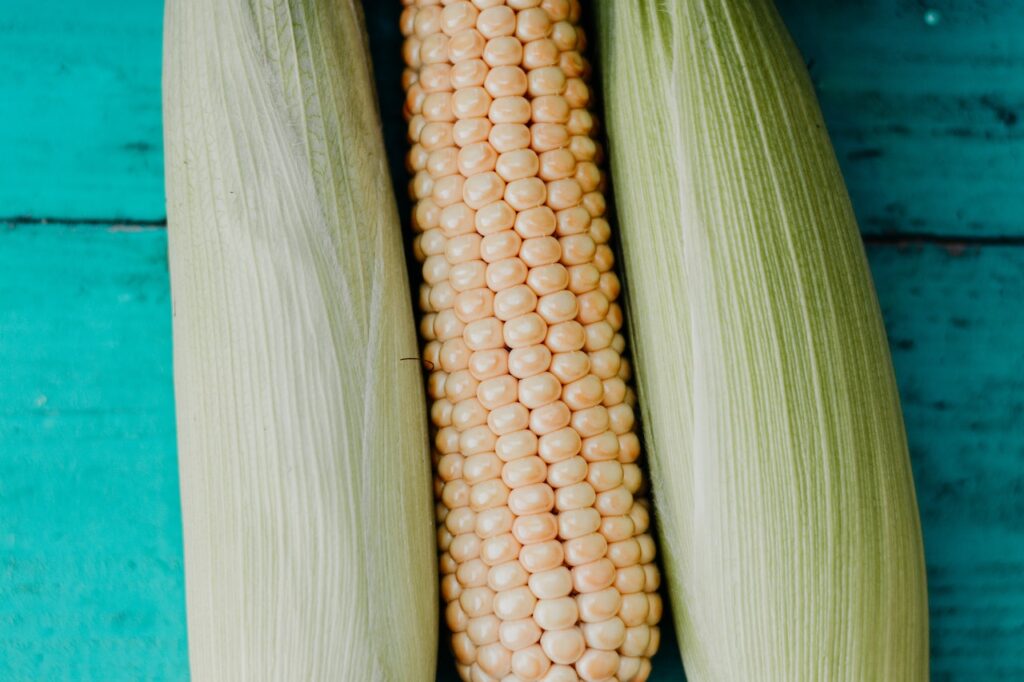
When we think of corn, we often focus on its taste and versatility. Still, the dietary fiber content makes it a good choice for those looking to maintain a healthy diet and manage weight.
Corn is particularly rich in dietary fiber, a carbohydrate that the body can’t digest. This indigestibility is what makes fiber so valuable in a diet. Consuming foods high in fiber, like corn, helps slow digestion, leading to a gradual release of energy. This sustained energy can keep you full, reducing the temptation to snack on unhealthy options throughout the day.
Fiber also plays an essential role in digestive health because it helps regular bowel movements and prevents constipation. Moreover, it can contribute to a healthier gut microbiome by nourishing beneficial gut bacteria, positively affecting overall well-being.
Thanks to its fiber content, corn can be a nutritious choice to incorporate into a diet as a side dish, in salads, or as a snack. Just remember that for optimal results, it’s crucial to maintain a healthy diet with various foods to ensure you’re meeting all your nutritional needs.
IS CORN GOOD FOR A DIET? CORN VARIETIES
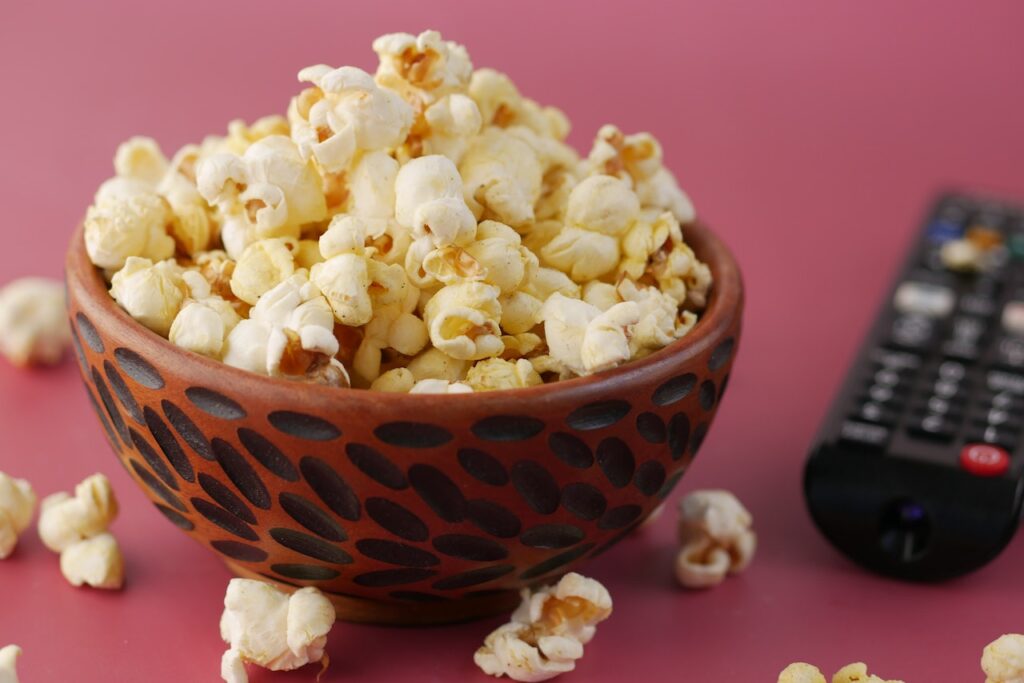
When considering: “Is corn good for a diet?” it’s essential to understand that not all corn varieties are created equal. There are various types of corn, each with its unique properties and applications in culinary and dietary contexts.
- Sweet Corn: Sweet corn is the most commonly consumed variety. People prize it for its natural sweetness, tender kernels, and versatility in cooking. This variety is an excellent source of dietary fiber and nutrients like vitamin C and folate. Its sweet taste makes it a popular choice in salads, side dishes, and as a healthy snack.
- Popcorn: Popcorn is a type of corn known for its ability to pop when heated. Popcorn can be healthy when prepared with minimal butter and salt. It can be a satisfying and low-calorie snack.
- Flint Corn: Flint corn, also known as Indian corn, is characterized by its hard kernels and diverse colors. Although less common in modern diets, people can use it in many traditional dishes and decorations.
- Flour Corn: Flour corn varieties have starchy kernels and are well-suited for grinding into cornmeal or flour. These products can be used in baking and cooking, providing a wholesome source of carbohydrates.
- Dent Corn: Farmers often use dent corn for animal feed and for producing corn-based products such as corn syrup and cornstarch.
Incorporating corn into your diet depends on your preferences and dietary goals. Sweet corn and popcorn, in particular, can be valuable additions. Remember to stay mindful of portion sizes and preparation methods to maximize the nutritional benefits while avoiding excessive calories or added sugars.
INCORPORATING CORN INTO A WEIGHT-LOSS-FRIENDLY DIET
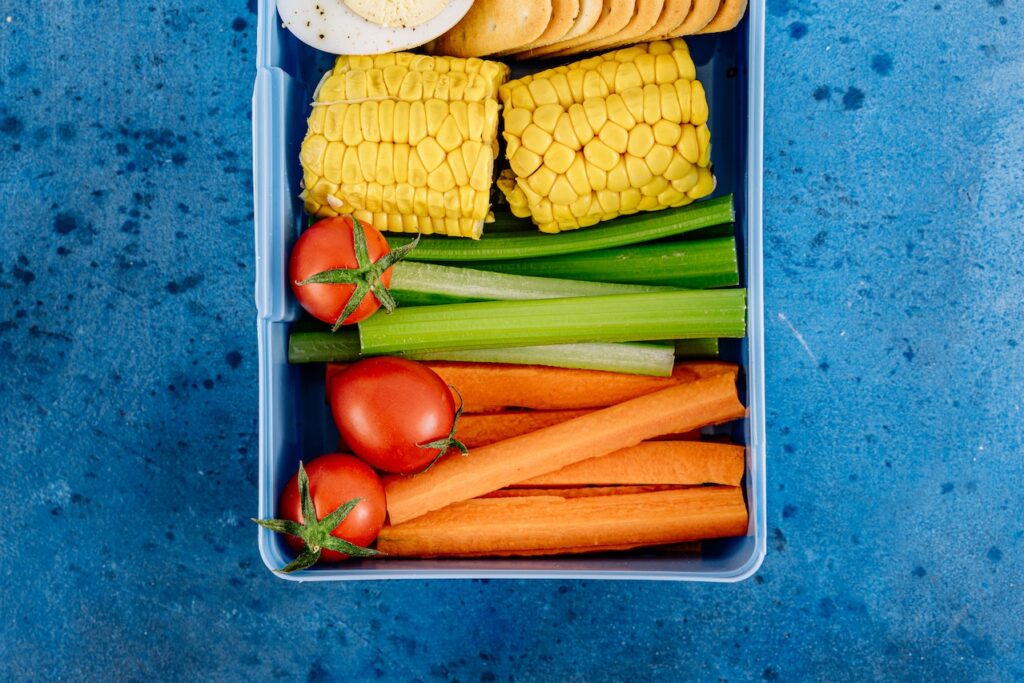
Is corn good for a diet? The answer is yes—with some essential guidelines to keep in mind.
A 100-gram serving of sweet corn provides roughly 96 calories, underscoring the importance of monitoring your portion sizes.
When cooking corn, choose healthier methods such as steaming or grilling with minimal butter or oil to savor its natural flavors without adding unnecessary calories. Avoid excessive use of butter or creamy sauces, as they can quickly turn a nutritious choice into a high-calorie one.
To ensure a balanced meal, incorporate corn into a well-rounded culinary ensemble with lean proteins, vegetables, and whole grains. For example, consider pairing a grilled chicken breast with steamed corn and a mixed green salad.
Exercise caution when selecting corn-based products like canned corn or cornbread, as they often contain added ingredients such as salt, sugar, or calorie-rich toppings. Opt for products with minimal additives or explore healthier homemade alternatives.
So, with thoughtful choices, corn can be a valuable component of your weight-loss-friendly diet.
CORN IN WEIGHT LOSS: DELICIOUS CORN RECIPES
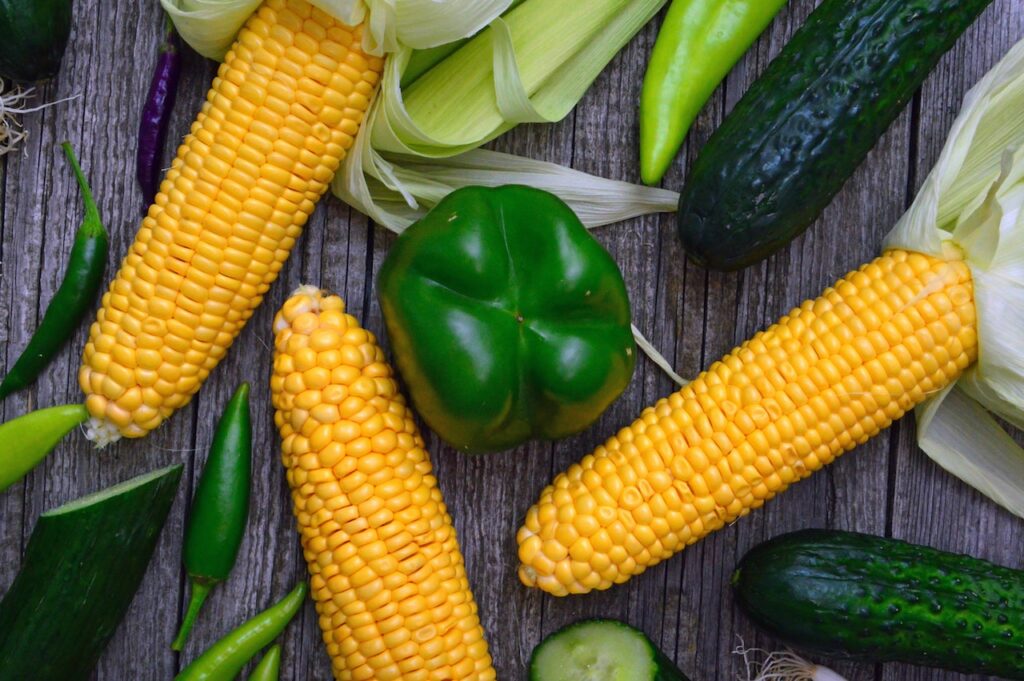
Below, we’ll share some delicious and nutritious corn-based recipes to help you stay on track.
Corn and Quinoa Salad
Ingredients:
- 1 cup of cooked quinoa
- 1 cup of cooked corn kernels
- 1 cup of cherry tomatoes, halved
- 1/4 cup of diced red onion
- 1/4 cup of fresh basil leaves, chopped
- Juice of 1 lemon
- Two tablespoons of olive oil
- Salt and pepper, to taste
Instructions:
- Combine the cooked quinoa, corn kernels, cherry tomatoes, red onion, and fresh basil in a large bowl.
- Whisk the lemon juice, olive oil, salt, and pepper in a small bowl to create the dressing.
- Pour the dressing over the salad and toss to combine. Chill before serving.
Sautéed Corn with Spinach
Ingredients:
- 2 cups of corn kernels (fresh or frozen)
- 2 cups of fresh spinach leaves
- Two cloves of minced garlic
- One tablespoon of olive oil
- Salt and pepper, to taste
Instructions:
- Heat olive oil in a pan over medium heat. Add minced garlic and sauté for a minute until fragrant.
- Add corn kernels and cook for 5-7 minutes until they brown slightly.
- Stir in fresh spinach leaves and cook until wilted.
- Season with salt and pepper and serve as a side dish or mix with lean protein for a wholesome meal.
Corn and Black Bean Salad
Ingredients:
- 1 cup sweet corn (fresh or thawed)
- 1 cup canned black beans (rinsed and drained)
- 1 cup diced tomatoes
- 1/2 cup diced red onion
- 1/4 cup chopped fresh cilantro
- Juice of 2 limes
- One tablespoon of olive oil
- Salt and pepper, to taste
Instructions:
- Combine the sweet corn, black beans, diced tomatoes, red onion, and cilantro in a large bowl.
- Whisk together the lime juice and olive oil in a separate small bowl to create a dressing—season with salt and pepper.
- Pour the dressing over the corn mixture and toss to combine. Adjust the salt and pepper to your taste.
- Refrigerate the salad for at least 30 minutes to allow the flavors to meld before serving.
_____
Is corn good for a diet for weight loss? Corn can indeed be a part of a healthy diet when consumed mindfully. Its sweetness and nutritional richness make it a fantastic food choice. Remember to maintain a balanced meal plan and prioritize whole corn options over processed alternatives to maximize this wholesome ingredient.
This post may contain affiliate links. You can read the affiliate disclosure here.

